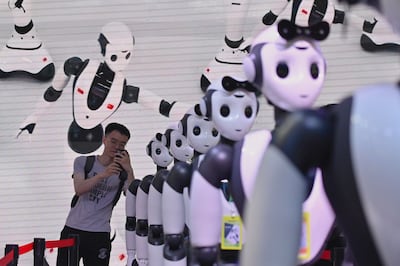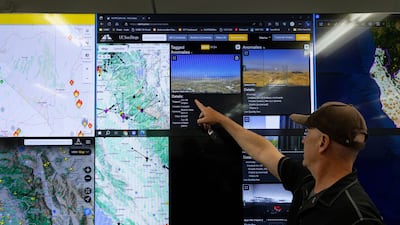Back in 1989, the American political theorist and philosopher Francis Fukuyama argued for “the end of history”. His concept was as simple as the headline was striking: he argued in an essay, and later in a 1992 book titled The End of History and the Last Man, that liberalism and liberal capitalism (in other words, market economics) had won the day, and that these were the inevitable and global end-states for countries.
From his vantage point, there was an inevitable trajectory that all countries would converge to, and ultimately embrace, because liberalism, in his view, had triumphed. That may have been his conclusion as the Cold War drew to a close and the Soviet Union collapsed. Of course, over time his view has been challenged and refuted by many. In a 2019 essay titled Why history didn’t end, the author Nick Spencer wrote: “As democracies tremble, America segregates, China surges ... and seas rise, few are predicting a post-historical future. Not for a long time has history felt so alive.”
I am no political theorist, but I try to anticipate the future as technologies develop and become intertwined with our lives. Like others, I have grappled with the meaning of artificial intelligence – what it has been delivering and how we engage with it.
In a previous column, I eschewed expressing my thoughts about the current AI flavour, which is generative AI – this democratised tool everyone is using – for better or for worse.

Of course, this is but one set of applications. Then there is AlphaGo, the AI platform that has taught itself the notoriously complex game Go, and is regularly beating the most capable humans. Spectacularly though, DeepMind, the AlphaGo producers, have also created AlphaFold2 – another AI system that can model the shape of proteins.
In the non-AI world, figuring out the 3D shape of a protein is a challenging and time-consuming task and scientists spend about three years to identify the shape of just one protein. AlphaFold2 has predicted the shape of millions of proteins. It is unlikely that all will be correct, but subsequent versions of this AI, with new training data, will continue to make unimaginable progress.
On another front, AI is being used in engineering and to accelerate prototype and product development. Almost endless design options can be tested with its help, and the most suitable solution can be identified. That is a big step from engineers devising the specifications of a new prototype, having then to build it and test it – like the new shape of a car in a wind tunnel – only to then build a new model based on the results of their lab tests.
And the list goes on: AI helps to diagnose disease, discover new drugs, identify new stars and galaxies, among other things. This tool will soon help create new materials, help us reach farther into space, even help us read our own genetic code and improve it to be better at anything. While it seems I get carried away, I feel we may be looking at the end of technology.
I am not saying that there will be no new technologies in the future – there will be plenty, and most of them will be surprising and helpful. But I would argue that the vast majority of new discoveries, experiments and resulting technologies will emerge thanks to – or with significant input from – artificial intelligence.
Much like progress already made through AI, this trajectory will continue and accelerate – thanks to AI. It is a bit like language. Once we have language, we can read and write books, sing songs with words (not grunts), stage a play, exchange ideas – in short communicate.
In the case of scientific advances, engineering progress and technological development, it is hard to see how AI would be a sideshow. On the contrary, it feels like AI is the last technology we need to develop and discover all the others. And that is far more exciting than the current widespread use of generative AI. It is clear that the decentralised nature of this tool will help countless people to use it to solve problems.
Tie this concept to a future where we will be able to print virtually anything at home or in a shared facility, and we’ll see an endless amount of super-rapid experimentation and optimisation happening.
So while AI spells the beginning of the end of technology, the final chapter of that story will be written by quantum computing. Quantum will accelerate infinitely the experimentation and optimisation phase, which can be carried out in parallel, not in sequence. This means that close-to-infinite cycles can be run all at once to identify the best solution.
So whatever new device or technology or mode of transport or medicine you use in the coming years, the odds are incredibly high (and growing) that they will exist thanks to artificial intelligence.


